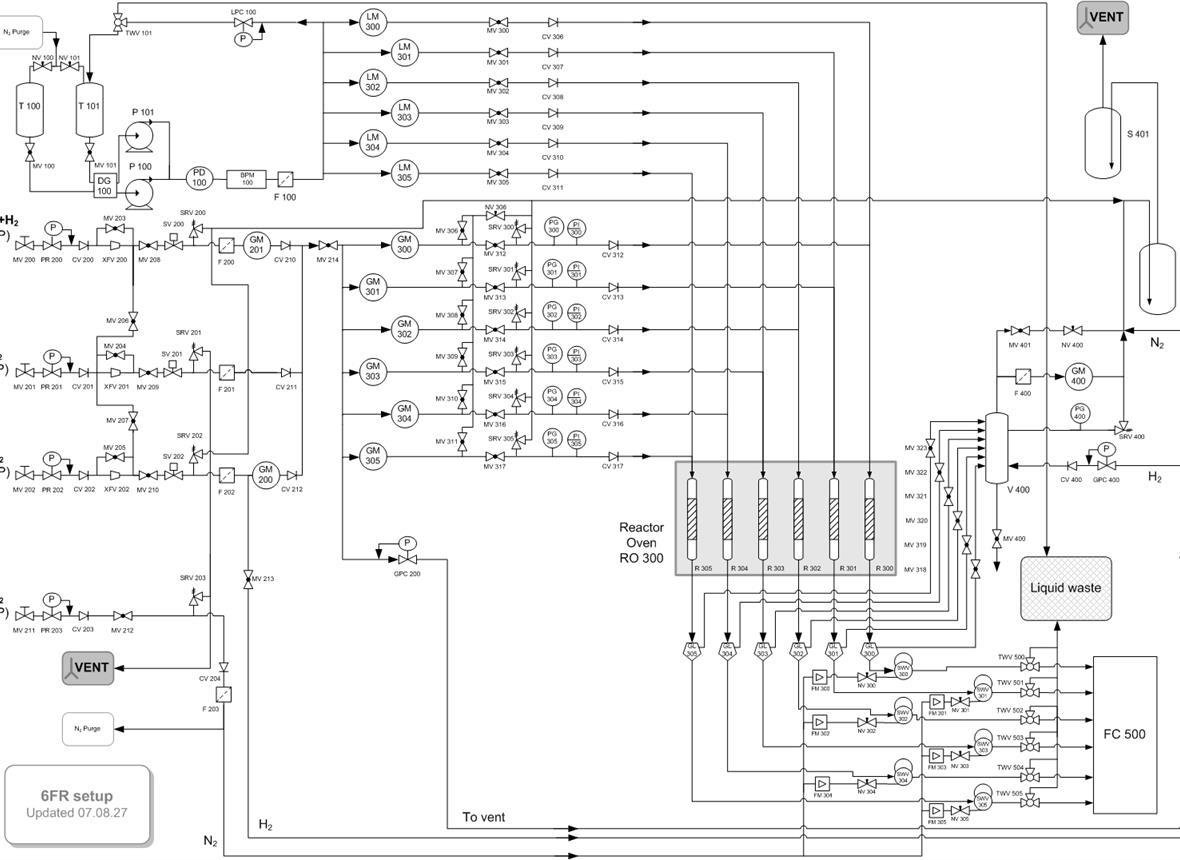Abstract
The deactivation pathways of a zeolite H-ZSM-5 catalyst containing bentonite and α-Al2O3 as binder material have been studied during the transformation of chloromethane into light olefins, which is considered as a possible step to valorize methane from natural gas. The reactions have been carried out in a fixed bed reactor, feeding pure chloromethane at 400, 425 and 450 °C, 1.5 bar and with a space-time of 5.4 (gcatalyst) h (molCH2)−1 for 255 min. The properties of the fresh and spent catalysts have been assessed by several techniques, such as N2 physisorption, adsorption/desorption of NH3, XPS and 29Si NMR. Additional measurements of the spent catalysts have been performed to study the nature of the deactivating coke species: TG-TPO analysis, SEM, and FT-IR and UV-vis spectroscopy. With the results in hand, two deactivation mechanisms were proposed: irreversible dealumination at temperatures higher than 450 °C by HCl and reversible coke fouling, while coke formation results from the condensation of polyalkylbenzenes, which are also intermediates in olefin production. The coke deposits grow in size with the addition of Cl to the carbonaceous structure.
Keywords
O2H
HCE
